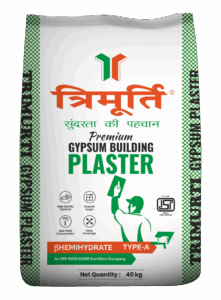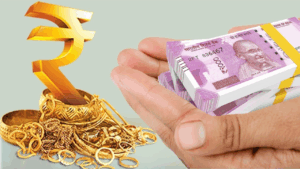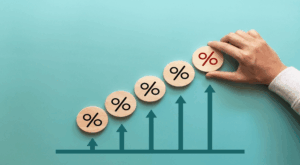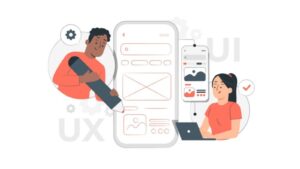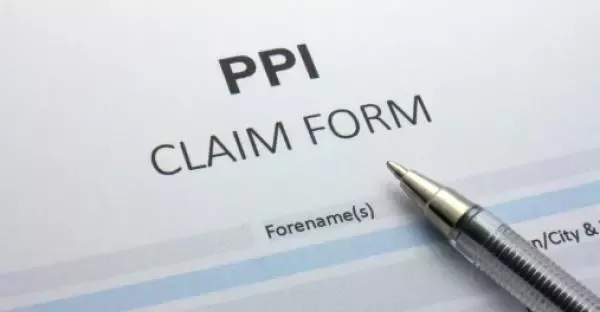
Are you tired of feeling like your finances are out of control? Do you want to take charge and start building a better financial future for yourself? Look no further than seeking a PPI refund! In this blog post, we’ll explore the importance of reclaiming mis-sold Payment Protection Insurance (PPI) and how it can help you regain control of your money. Don’t let past mistakes hold you back – learn how to take control of your finances today!
Introduction to PPI (Payment Protection Insurance)
Payment Protection Insurance, commonly known as PPI, is a type of financial product that was designed to help borrowers repay their loans in the event of unforeseen circumstances such as unemployment, illness or accident. It was typically sold alongside credit cards, mortgages and other forms of loans in the UK between the 1990s and early 2010s.
PPI was marketed as a form of protection for consumers, giving them peace of mind knowing that they would still be able to make their loan repayments even if something unexpected happened. However, it soon became apparent that this insurance was being widely mis-sold by banks and lenders, leading to one of the biggest financial scandals in recent years.
The Mis-selling Scandal
In 2005, an investigation by the Citizens Advice Bureau revealed that many customers were being sold PPI without their knowledge or consent. In some cases, it was added to loan agreements without the borrower’s knowledge or understanding. This practice continued for years until the scandal erupted in 2011 when several major banks were fined for mis-selling PPI on a massive scale.
According to reports from the Financial Conduct Authority (FCA), over £50 billion has been paid out in compensation for mis-sold PPI since January 2011. The FCA also estimated that around 64 million policies were sold between 1990 and 2010 and up to two-thirds may have been mis-sold.
Common Forms of Mis-selling
There are various ways in which PPI was mis-sold by lenders. Some common examples include:
– Customers being led to believe that taking out PPI would increase their chances of getting approved for a loan.
– Failure to inform customers about exclusions such as pre-existing medical conditions or self-employment status which meant they could not make a claim.
– Selling policies to individuals who were already covered by sick pay or other insurance policies that would provide similar cover.
– Not making customers aware that PPI was optional.
Why You Should Consider a PPI Refund
If you took out a loan or credit card between 1990 and 2010, there is a high chance that you were mis-sold PPI. It is important to check your financial records and see if you have been paying for this insurance without your knowledge or consent. If so, you may be entitled to a refund of the premiums paid plus interest.
In the next section, we will discuss the steps you need to take in order to make a claim for mis-sold PPI and how it can help improve your financial situation. Don’t miss out on the opportunity to take back control of your finances by seeking a PPI refund.
Understanding the PPI Mis-selling Scandal
The PPI (Payment Protection Insurance) mis-selling scandal has been an ongoing issue in the financial world for over a decade. It has affected millions of people and resulted in billions of pounds being paid out in compensation. So, what exactly is the PPI mis-selling scandal and how did it happen?
PPI was sold alongside loans, mortgages, credit cards, and other financial products as a means of protecting borrowers in case they were unable to make repayments due to unexpected circumstances such as illness or unemployment. However, many banks and lenders began aggressively selling PPI policies to customers who did not need or want them, often without their knowledge or understanding.
One common tactic used by banks was bundling PPI with loans or mortgages without clearly explaining that it was optional. In some cases, customers were even told that having PPI would increase their chances of getting approved for a loan. This led to people paying for protection they didn’t need or even realise they had.
Another issue with the sale of PPI was that it wasn’t always suitable for everyone. Some policies excluded self-employed individuals or those with pre-existing medical conditions, making the coverage useless if these situations arose.
The mis-selling also extended to the way claims were handled. Many customers found that when they needed to make a claim on their policy, they were denied due to various loopholes in the fine print or incorrect information provided at the time of sale.
As a result of these unethical practices, millions of people have been wrongfully charged for PPI policies that did not provide any benefit to them. The scale of this scandal became evident when investigations by consumer groups and regulatory bodies revealed that almost 64 million policies had been sold since 1990.
In response to mounting pressure from consumer groups and regulators, major banks halted sales of PPI in 2011 and agreed to compensate customers who were mis-sold policies. The process involved sending out letters informing customers of their right to make a claim and providing them with a deadline to do so.
However, many people are still unaware that they may be entitled to a refund. This could be due to not realising they had PPI or not understanding the complexities of making a claim. It is crucial for individuals to educate themselves about the PPI scandal and take action if they think they may have been affected.
In the next section, we will discuss the steps you can take to seek a PPI refund and how it can significantly impact your financial situation.
How to Check if You are Eligible for a PPI Refund
If you have ever taken out a loan or credit card in the past, chances are that you may have been mis-sold Payment Protection Insurance (PPI). This insurance was sold to consumers as a way to protect their repayments in case of unforeseen circumstances such as illness, job loss, or death. However, it was often added without the knowledge or consent of the borrower and in many cases, was completely unnecessary. As a result, millions of people in the UK have been entitled to claim refunds for mis-sold PPI.
If you believe that you may have mis-sold PPI and are interested in seeking a refund, the first step is to determine whether or not you are eligible. In order to be eligible for a PPI refund, there are certain criteria that must be met. Here’s how to check if you meet these requirements:
1. Did You Have PPI?
The first step is to establish whether or not you had PPI on any of your loans or credit agreements. If you can’t remember whether or not you had this insurance, start by checking your bank statements for any regular payments labelled as “PPI” or “insurance”. If you find these payments on your statements, it’s likely that you had PPI.
2. Were You Mis-Sold?
Once you have established that you had PPI on your loans or credit cards, the next step is to determine if it was mis-sold to you. Some common ways in which PPI was mis-sold include being told it was mandatory when it wasn’t, being sold a policy without being informed about its cost or terms and conditions, and being unaware that the policy wouldn’t cover pre-existing medical conditions.
3. When Was Your Policy Taken Out?
You can only make a claim for a PPI refund if your policy was taken out after January 14th 2005 and before April 6th 2011. This is because the Financial Conduct Authority (FCA) introduced new rules in 2005, and any policies taken out after this date were subject to stricter regulations. If your policy was taken out before January 14th 2005, you may still be able to make a claim, but you will need to provide additional evidence of mis-selling.
4. Do You Have the Relevant Documents?
Having the relevant documents can help strengthen your case for a PPI refund. These could include loan or credit card agreements, statements showing PPI payments, or any correspondence with the lender regarding PPI. However, if you no longer have these documents, you can still make a claim by providing as much information as possible about your loans and credit cards.
If you meet all of these requirements, then congratulations – you are eligible for a PPI refund! The next step is to start the claims process and get back what is rightfully yours. By seeking a PPI refund, not only will you be taking control of your finances but also holding lenders accountable for their unethical
Conclusion: Why Taking Control of Your Finances Matters
In today’s fast-paced world, it is easy to get caught up in the constant cycle of earning and spending. However, taking control of your finances is essential for a secure and stable future. This becomes even more crucial when it comes to seeking a PPI refund. Not only can it provide you with much-needed financial relief, but it also highlights the significance of being responsible for your money.
By actively managing your finances and tracking your expenses, you are aware of where every penny goes. This knowledge empowers you to make informed decisions about your spending habits and prioritise what is truly necessary. It allows you to identify areas where you can cut back on unnecessary expenses and save for future goals.
One significant benefit of taking control of your finances is the ability to create an emergency fund. Life is unpredictable, and having a financial safety net can protect you from unexpected expenses such as medical emergencies or job loss. Without proper financial planning, these unforeseen circumstances can quickly spiral into debt and cause long-term implications on your financial stability.
Moreover, by managing your finances effectively, you are also setting yourself up for a comfortable retirement. Saving early on in life ensures that you have enough funds to maintain a comfortable lifestyle during retirement without solely relying on government benefits or support from family members.
Being in control of your finances also gives you the freedom to pursue opportunities that may improve your financial situation in the long run. For instance, investing in higher education or starting a business requires significant upfront costs but can lead to greater returns in the future.
Furthermore, taking control of your finances means being proactive about protecting yourself from potential scams or mis-selling situations like PPI refunds. With proper monitoring and record-keeping, not only will you be able to spot any discrepancies in terms of charges or fees but also take action against them before they escalate into bigger problems.
Taking control of our finances is crucial for our overall financial well-being. It allows us to be financially prepared for unexpected situations, plan for the future, and make informed decisions about our money. By actively managing our finances, we are taking steps towards a more secure and stable financial future.
